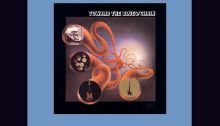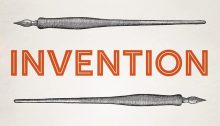Book Review: Two Germans Walk Into A Bar …
Andreas Reckwitz, Hartmut Rosa, Late Modernity in Crisis (Polity, 2023)
Reviewed by Peter Beilharz
Book Review: Adorno meets the Algorithm
Jurgen Habermas, A New Structural Transformation of the Public Sphere and Deliberative Politics (Polity, 2023)
Reviewed by Peter Beilharz
Event: Toward the Blues with Peter Beilharz
Book launch of “Toward the Blues”
Peter’s observation of cultural traffic in 1970s Australia refracted through the prism of a singular cultural artefact: the album Toward the Blues, released by Melbourne blues band Chain in 1971.
Book Review: Inventing Marxism – More, Please
Christina Morina, The Invention of Marxism – How An Idea Changed Everything (Oxford University Press, 2023)
Reviewed by Peter Beilharz
Book Review: The Photographs of Zygmunt Bauman
The Photographs of Zygmunt Bauman, edited by Peter Beilharz and Janet Wolff (Manchester University Press, 2023)
Reviewed by Eric Ferris
Book Review – Zygmunt Bauman: Messages in Bottles
Zygmunt Bauman, My Life in Fragments, edited by Izabela Wagner (Polity, 2023);
Zygmunt Bauman, History and Politics, edited by Mark Davis, Jack Palmer, Dariusz Brzezinski and Tom Campbell (Polity 2023).
Reviewed by Peter Beilharz
Event: Antonio Gramsci – In these times (Feb 28)
A Discussion with Alastair Davidson, Andrew Wells, and Peter Beilharz
What’s the fuss about Gramsci? Or, how is Gramsci still relevant today? Gramsci remains an influential, if not auratic figure for marxism, critical theory and cultural studies, including the postcolonial. Ideas like hegemony have become standard, alongside Fordism, historic bloc, interregnum, the Southern Question and so on. Yet our worlds have changed substantially since Gramsci developed this vocabulary in the thirties; and the question of how Gramsci should be situated, Italian or Sardinian, and interwar, may be less exercised.
Reflecting on Peter the Teacher
by Julian Potter
Thirty years separate Peter and Zygmunt, another thirty separate myself and Peter. These are generational spans, time enough for considerable changes that challenge traditions. Through my story, I would like to suggest that the refounding of intellectual traditions on friendship, instead of, and sometimes in spite of institutions, or enframed goals such as politics, is one of Peter’s gifts to his postmodern students and those who have met him along the way. Another is the vital question for scholarly endeavour: ‘Is it interesting?’ And for me, the love of books.
“Peter’s House of Theory” – A Postcard to Peter
by Margaret Somers
I fell in love with Peter the first time I met him, at an American Sociological Meeting, sometime in the late 1980s, I think. This was, of course, love Beilharzian-style – not the amorous variety but an intimacy of shared political intellectual practice. The ASA was a fitting place to meet as it was one of Peter’s most fertile sites for his Beilharzian love assignations.
Review Essay: The Posthumous Bauman
Review Essay: The Posthumous Bauman
By Matt Dawson
2023 saw six new books by, and about Zygmunt Bauman published. 6 years after his death, these texts were part of an emerging body of literature we may call The Posthumous Bauman. I explore the key lessons this literature has offered and suggest there are four key themes: our increased knowledge of Bauman’s life and its link, or not, to his sociology; the role of the hinterland for the sociologist; the increased interest in Bauman’s lifelong sociological project before he came to Leeds; and the differing receptions of Bauman’s work.














